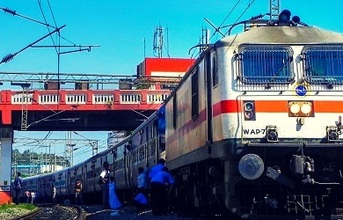
Indian Railways has taken up the RFID project that aims to automatically and accurately track and trace rolling stock as they move across India. Two works for RFID project have been sanctioned by Railway Board for a total of Rs. 112.96 Crores. The move comes in an attempt to fuel growth plans and improve operational efficiency.
For implementing the project, Centre for Railway Information Systems (CRIS), GS1 India and the Indian Industry have come together in sync with Make in India. The project is being spearheaded by the Rolling Stock Department of the Indian Railways. GS1 India is involved in ensuring the quality of work and proper adoption of international standards. The IT arm of the Indian Railways has been utilising the expertise of GS1 in developing and validating solutions, based on GS1 Standards, for the Indian Railways.
The project enables real-time visibility of railway wagons through the National Rail Network using cutting edge technologies like RFID with GS1 global standards for unique and universal identification, in line with global best practices. It enables enhanced operational efficiency of the Indian Railways. In order that RFID tags can be used in all locations in the country including those with poor connectivity, Indian Railways opted to use the GIAI-202 standard. Indian Railways has successfully field tested these CRIS designed GIAI202 encoded tags at a speed of 182.7 kmph. This feat puts the Indian Railways in the league of leaders with respect to AIDC technology in the Railways sector.
The Indian Railways has aggressive implementation plans for RFID. All Rolling Stock, roughly 3,50,000 vehicles, are expected to be tagged by 2021. Till now approximately 22,000 wagons and 1200 coaches have been fitted with RFID tags. Additionally, roughly 3500 fixed RFID readers are expected to come up which shall communicate to a central control centre using GS1's low level reader protocol standard.


























